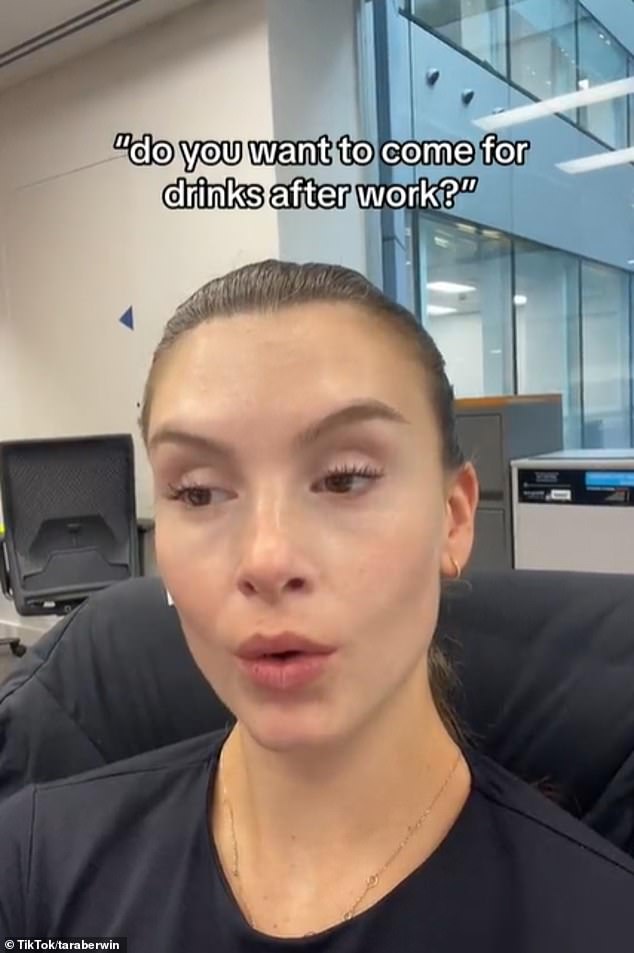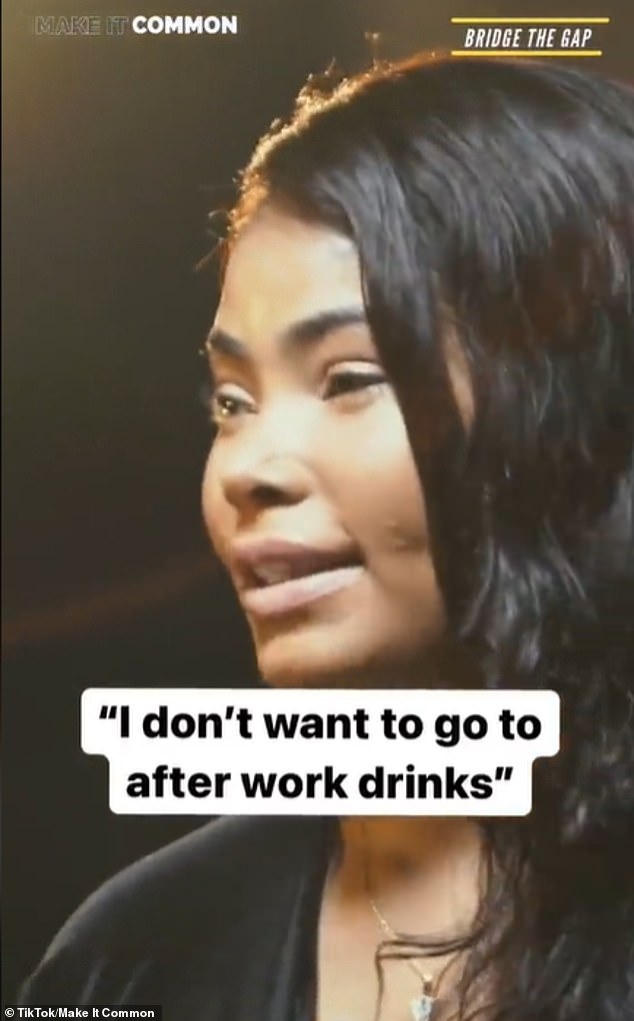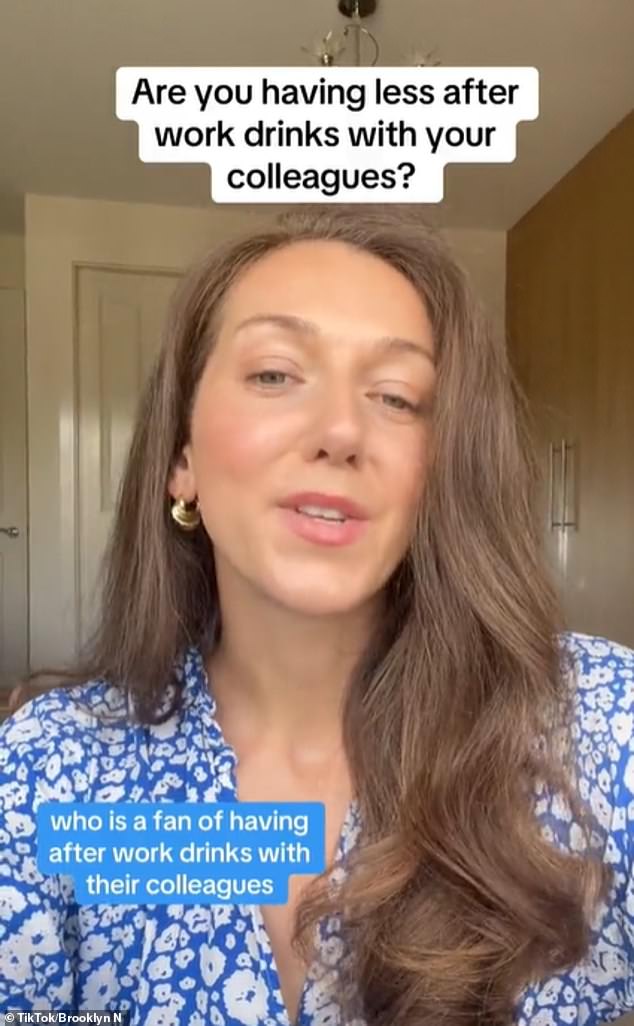Bosses are being urged to replace the traditional after-work pint with daytime socialising to be more inclusive and attract non-drinking Gen Z staff.
However, it seems that the reluctance to enjoy a night out with colleagues may have less to do with avoiding alcohol and more to do with the way the younger generation views socialising as a form of unpaid extra work.
Workers across the UK have taken to TikTok to express their disdain for socialising with colleagues when they are not working, even suggesting they should be paid overtime for it.
Responding to workplace influencer Brooklyn Norton asking if people still like drinks at work, one wrote: “Unless I’m getting paid to be there, I’m not joining you.”
Another added: “I get paid to talk to my colleagues from 9 to 5, not after,” while a critical colleague agreed, saying: “Unless company socialising is during work hours, I don’t participate. They’re colleagues, not friends.”
Brooklyn Norton, who vlogs about careers, received a flood of responses after asking why people don’t want to go to the pub after work.

Stephen Adeoye, founder and CEO of Beyond Education, included the idea of saying no to drinks at work in his list of three things he “won’t do in corporate Britain”.
“I spend more time with them than I do with my real friends and family. It’s a difficult step for me.”
It seems that a defining principle for some Gen Z workers is not being required to do anything work-related (not even a trip to a pub or bar) if it is outside of working hours.
This no doubt explains why daytime events such as breakfast groups or away days have become popular among younger workers, with a growing number of TikTok posts showing these events taking place at companies across the UK.
Videos of office “breakfast clubs” show employees being offered a variety of croissants, juices and fruits to enjoy while having the chance to “network” with their colleagues during the workday.
Another TikTok user also drew a clear line between work and friendship, saying: “My workday is over. I’m a professional so I can do the job without being your friend. If you can’t, then I wouldn’t hire such a needy adult.”
Tara Berwin shared a similar sentiment, suggesting in a TikTok video that she would “rather go flying” than go out for drinks at work.
She was an actress in her childhood and appeared in films such as Gosford Park, but now has a corporate job in London.

London-based Tara Berwin, a former child actress who appeared in films such as Gosford Park, now works in corporate.

A Make It Common commentator has spoken about the pressure she felt to adopt pub culture in order to succeed in the corporate world.
Part of that reluctance no doubt has to do with avoiding alcohol.
A recent report found that after-work drinks are on the way out as more people work from home and younger staff prefer not to drink: 21 percent of under-25s said they avoided alcohol altogether last year, up from 14 percent in 2017.
This shift in behaviour has led one group of experts to suggest that bosses should ditch the idea of late-night drinks altogether and replace them with more activities that appeal to less alcohol-focused workers, such as group breakfasts or days off work.
However, while some workers might be happy to share small talk over croissants with their colleagues rather than drinking alcohol to socialise with their peers, for many, interacting with their colleagues is a “no go” and that’s it.
For some, it’s about not wanting to be around people who they feel are simply not their friends, while others confess that having to spend more time than necessary with their colleagues is “exhausting” and “torturous.”
One scathing commenter wrote: “It’s just painful to be around a lot of older colleagues, don’t get me wrong we have nothing in common and it seems very forced.”
For Sevda, the issue is simple: “Nobody likes their mates anymore, so nobody wants to drink.”







Commenters took to TikTok to reveal the real reason they don’t want to socialize with their colleagues after work.
Another commenter was more scathing, saying: “After-work drinks are torture. I’d rather do literally *anything* else,” while Annie replied: “No. Not anymore (I’m 32). I want to get away from those people.”
SanjySeth said, ‘I never socialize with my coworkers. I can’t stand to continue with that exhausting small talk when I don’t have to be with them…’
Another didn’t mince words, saying: “No way, I hate these fake corporate personas, I detest them.”
For some workers, it’s not that they hate their colleagues, but that they differentiate between coworkers and true friends. In the opinion of one worker: “Coworkers are not friends. Don’t make that mistake.”
“I love having drinks after work. Only with my real friends, not with people from work,” Joanna added, “No, never. Work is work and friends are friends, they are not the same thing. For me there are strict boundaries.”
Some TikTok users are quick to point out that the idea that attending drinks at work can help you climb the corporate ladder faster is a myth, and that you won’t actually gain much by going if you don’t want to.
MakeItCommon shared a video in which she said: ‘When I was in the corporate world, I was just told things like, “I don’t want to go out for drinks after work,” but that’s the culture, so I just do it. It was like, “Oh, do you want to go to the bar?” No, I don’t want to, but I know that’s going to help me.
Stephen Adeoye, founder and CEO of Beyond Education, included saying no to drinks at work on his list of three things he “won’t do in corporate Britain”.
“I’m not going to be pressured by my colleagues to go out for a drink at work if I don’t feel like it,” she said. “I think a lot of people think that you actually have to go out for a drink at work to get ahead, when that’s not the case.
“If you don’t feel like going, don’t go. You don’t have to go to work for a drink to get ahead in the corporate world. That’s a myth.”
But while the consensus seems to be that drinks at work have come to an end, there are some people who are still keen to have a pint or cocktail with colleagues after work.
One wrote: ‘It seems like you work with some rubbish people. I love the people I work with and am always up for a drink with coworkers. It’s nice to socialise with them outside of work. I love it!’


